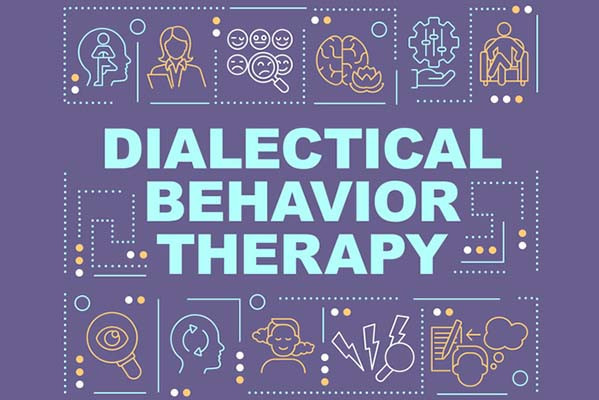
A fresh look at risks for developing young-onset dementia

Dementia usually develops in people ages 65 years and older. So-called young-onset dementia, occurring in those younger than age 65, is uncommon. Now, a new study published in December 2023 in JAMA Neurology has identified 15 factors linked to a higher risk of young-onset dementia.
Let’s see what they found, and — most importantly — what you can do to reduce your own risks.
Are early dementia and young-onset dementia the same?
No. Experts think of early dementia as the first stage in dementia. Mild cognitive impairment and mild dementia are forms of early dementia. So, someone age 50, 65, or 88 could have early dementia.
Young-onset dementia refers to the age at which dementia is diagnosed. A person has young-onset dementia if symptoms and diagnosis occur before age 65.
What has previous research shown?
A previous study of men in Sweden identified some risk factors for young-onset dementia, including high blood pressure, stroke, depression, alcohol use disorder, vitamin D deficiency, drug use disorder, and overall cognitive function.
What to know about the new study
In the new study, a research team in the Netherlands and the United Kingdom looked at data from the UK Biobank. The biobank follows about half a million individuals in the United Kingdom who were 37 to 73 years old when they first joined the project between 2006 and 2010. Most participants identified as white (89%), and the remaining 11% were described only as “other.” Slightly more than half of the participants (54%) were women.
The researchers excluded anyone age 65 or older and people who already had dementia at the start of the study, leaving 356,052 participants for the analyses. Over roughly a decade, 485 participants developed young-onset dementia. The researchers compared participants who did and did not develop young-onset dementia to identify possible risk factors.
What did the researchers learn about risks for young-onset dementia?
In reviewing the results, I think it is helpful to group the risk factors into several categories, and then to examine each of them. These risks may act on the brain directly or indirectly.
Eight factors that we know or strongly suspect cause dementia:
- Genes: Carrying two apolipoprotein E (APOE) ε4 alleles is a major genetic risk factor for Alzheimer’s disease. The risk is thought to be caused by the APOE ε4 protein not clearing amyloid efficiently from the brain. This allows amyloid to accumulate and cause plaques, which starts the cascade to cell death and Alzheimer’s disease.
- Being diagnosed with alcohol use disorder (AUD) has been associated with damage to several parts of the brain, including the frontal lobes, which leads to trouble with executive function and working memory. When combined with poor nutrition, AUD also harms small regions connected to the hippocampus that are critical for forming new memories.
- Being socially isolated is a major risk factor for dementia. Although the exact mechanism is unknown, it may be because our brains evolved, in large part, for social interactions. Individuals with fewer social contacts have fewer social interactions, and simply don’t use their brains enough to keep them healthy.
- Not getting enough vitamin D can lead to more viral infections. A number of studies suggest that certain viral infections increase your risk of dementia.
- Not hearing well increases your risk for dementia, as I discussed in a prior post. This is likely because of reduced brain stimulation and reduced social interactions. Using hearing aids lessens that risk.
- Previously having had a stroke is a risk factor because strokes damage the brain directly, which can lead to vascular dementia.
- Having heart disease is a major risk factor for strokes, which can then lead to vascular dementia.
- Having diabetes if you’re a man can lead to dementia in many different ways. Why only if you’re a man? The researchers suggest that it is because middle-aged men are more likely to have a diabetes-related ministrokes than middle-aged women, which can, again, lead to vascular dementia.
Two factors that reduce cognitive reserve
Cognitive reserve can be described as our capacity to think, improvise, and problem-solve even as our brains change with age. These two risk factors make it more likely that dementia symptoms will show up at a younger age.
- Having less formal education may affect your familiarity with the items on the pencil-and-paper cognitive tests that are used to diagnose dementia.
- Having lower socioeconomic status may be related to lower-quality education.
Is every factor identified in the study a clear risk?
No, and here’s why not: Sometimes research turns up apparent risk factors that might be due to reverse causation. It’s possible, for example, that symptoms of impending dementia appear to be risk factors because they become noticeable before obvious dementia is diagnosed.
- Lower handgrip strength is a sign of frailty, which is often associated with dementia.
- No alcohol use is a risk factor because people may stop drinking when they develop memory loss (also known as the “healthy drinker effect” in dementia).
- Depression is a risk factor because many people get sad when they have trouble remembering or when they are worried about having dementia.
Lastly, there are risk factors that could be either a contributing cause or a result of the impending dementia.
- High C-reactive protein is a sign of inflammation.
- Orthostatic hypotension is an abnormal drop in blood pressure when a person stands up after lying down or sitting. While this condition can lead to brain damage and dementia, it can also be a result of some types of dementia, such as Parkinson’s disease dementia and dementia with Lewy bodies.
What can you do to prevent young-onset dementia?
Taking these five steps can reduce your risk for developing dementia before age 65:
- Don’t drink alcohol in excess.
- Seek opportunities to socialize with others regularly.
- Make sure that you’re getting enough vitamin D. You can make your own vitamin D if your skin (without sunblock) is exposed to sunlight. But in northern climates you might need to take a supplement, especially in the winter. Because vitamin D can interact with other medications, ask your doctor about this option.
- Make sure you are hearing well and use hearing aids if you are not.
- Exercise regularly, eat a healthy diet, maintain a healthy body weight, and work with your doctor to reduce your risk of strokes, heart disease, and diabetes.
About the Author

Andrew E. Budson, MD, Contributor; Editorial Advisory Board Member, Harvard Health Publishing
Dr. Andrew E. Budson is chief of cognitive & behavioral neurology at the Veterans Affairs Boston Healthcare System, lecturer in neurology at Harvard Medical School, and chair of the Science of Learning Innovation Group at the … See Full Bio View all posts by Andrew E. Budson, MD


